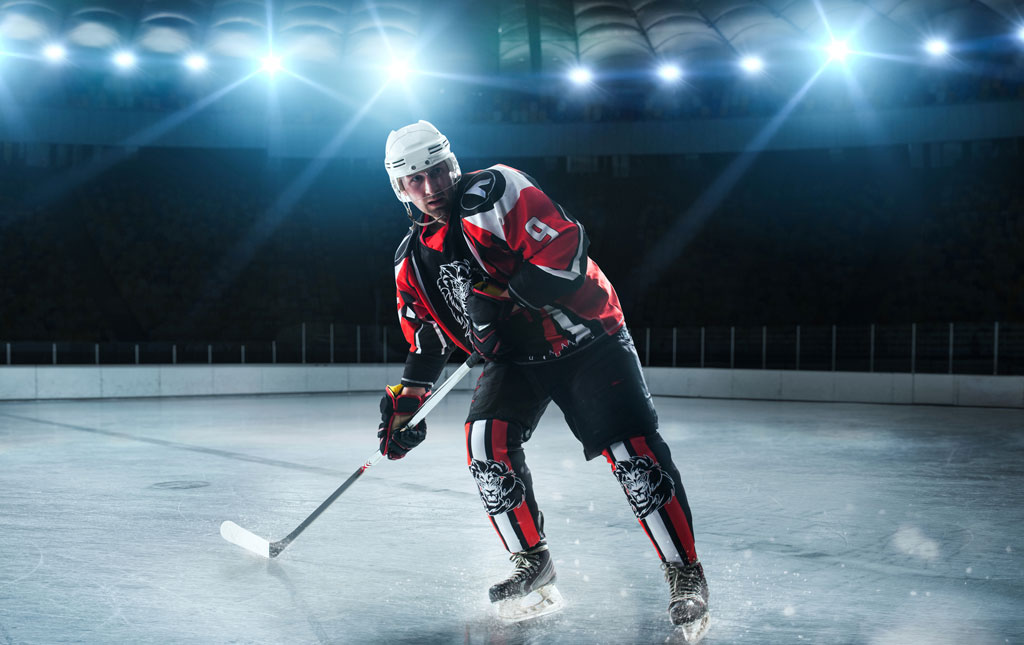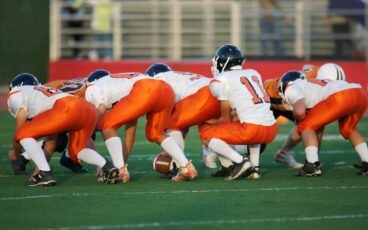
Ice hockey is loved by most of us across the Chicagoland area, with over 2 million Americans playing hockey each year.1 With the passion and love for the game, approximately 20,000 players will visit the ER for an ice-hockey-related injury each year.2
Ice hockey is an exhilarating, fast-paced, high-rate collision sport. From players being slammed into the boards, sticks flying high, and hockey pucks traveling at a speed of around 100 miles per hour, injuries are bound to happen. Some of the most seen injuries in hockey are contusions, sprains, fractures, dislocations, concussions, injuries to the face and teeth, and spinal cord injuries.
Injury prevention is key in all sports, and especially ice hockey. There are simple techniques to prevent hockey injuries for you and your loved ones this season.
Get a Physical: Most teams require that you get an annual physical before hockey season. Be sure to get a thorough exam to ensure you are in optimal health, before ramping up your training routine.
Warm Up & Stretch: Cold muscles are much more prone to injury. Studies and experts in sports medicine emphasize that inadequate warm-ups or skipping warm-up sessions can increase the risk of injuries in hockey players. Always warm up and stretch before activity to promote blood flow to muscles and help prevent injury. Warm up all the muscle groups, such as legs, back, hips, and shoulders.
Wear Protective Gear: Due to the aggressive nature of hockey, appropriate gear is essential. Players are often slammed against the boards and hit with sticks and pucks. Your gear should be the appropriate size and have adequate thickness for maximum protection. Make sure skates are high quality and are laced up appropriately.
Stay Fit in the Off-Season: During the off-season, you should strength train, stretch, and include aerobic exercises as part of your regimen. A strong core is key in preventing injuries. Consider playing more than one sport to remain active in the off-season and help prevent overuse injuries.
Start Training before the Season Starts: Just staying in shape in the off-season is not enough. Consider incorporating hockey-specific drills. Include unilateral exercises, core exercises, and specific stretches that address any weak areas. Work on skating drills, stick handling, and puck shooting techniques.
Hydrate: Hydrated muscles are stronger and more resilient, making players less susceptible to injury, and enhancing their rate of recovery. Hydration improves mental focus and temperature regulations for better performance. Hockey players should hydrate before, during, and after games or practices. Electrolyte-rich beverages can significantly impact performance and player well-being.
Eat a Nutritious Diet: Eating a nutrient-dense diet will provide muscles, bones, and ligaments with the vitamins and nutrients they need to stay healthy and recover after exercise. For optimal performance, hockey players need a balanced diet that provides energy, promotes muscle recovery, and supports overall health. Players should maintain consistency in eating habits throughout the year, with a focus on pregame and postgame nutrition while in season. A sports nutritionist can provide a customized recommendation, specific to your training program and health history.
Avoid Overuse Injuries: Overuse injuries are becoming more common, especially among kids who only play one sport all year-round. Using the same muscle groups, while performing the same movements, can lead to an overuse injury. Muscles need time for recovery. Diversify your workouts and training, and schedule much-needed rest days.
Get Help from an Expert Physical Therapist: Physical therapists will identify the weak and vulnerable areas of players that may be more susceptible to injury. They can provide you with specific drills and exercises to help strengthen weak muscles. PT helps customize the precise training for each individual player’s needs.
While hockey involves risks, the love for this winter sport often outweighs the potential for injuries. Embracing these preventive measures can safeguard players’ well-being, and ensure they continue to enjoy the sport they love for the long haul. If you are looking to improve your game or supplement your training for better performance, the Health Performance Institute at Illinois Bone & Joint can help.
Phil Bushbacher, MS, PES, CES, TSAC-F, NSCA-CPT, a professional hockey player for over a decade, is the Hockey Coordinator at Illinois Bone & Joint Institute in Chicago. Phil has extensive knowledge and experience in ice hockey, serving as a strength and conditioning coach for professional and amateur levels. In his spare time, he serves as the head coach/GM of the Chicago Crush Elite team in the USPHL and plays for the Port Huron Prowlers of the FPHL.
1 Ice hockey participants in the United States since 2006, Statistica




